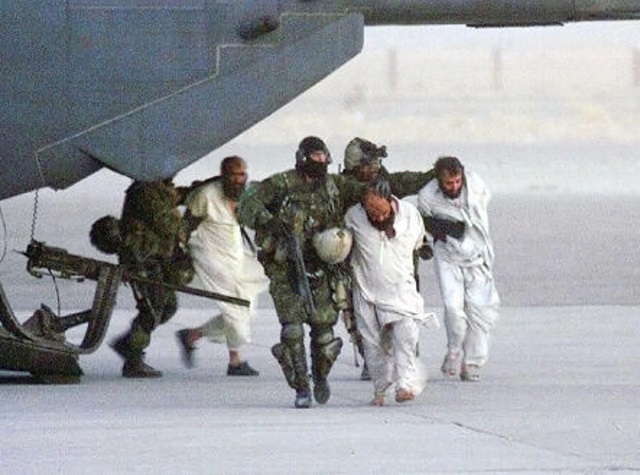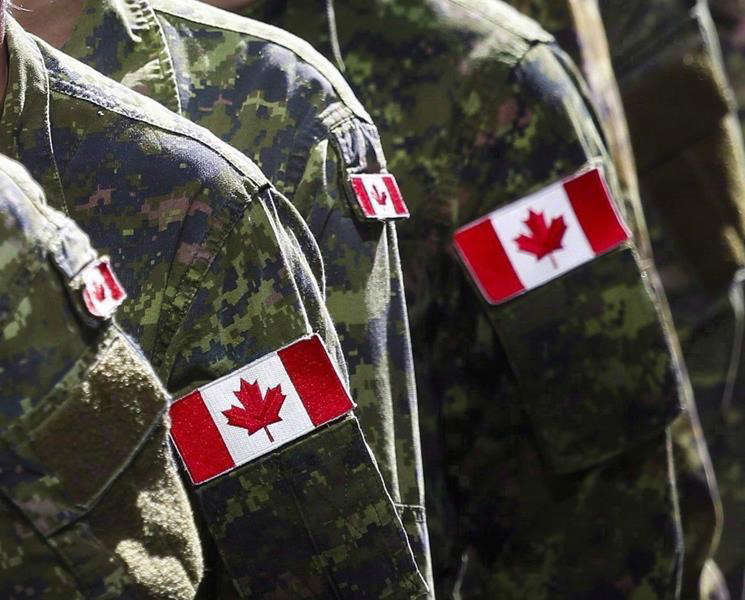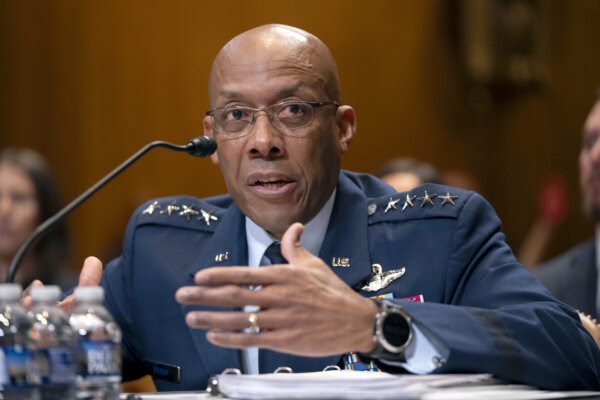armed forces
Lest we forget our military

From the Frontier Centre for Public Policy
By Lee Harding
An ocean of distance separates Flanders Fields from Ottawa. By now, we are separated just as much from the sentiments of the poem with the same name. In Flanders fields
An ocean of distance separates Flanders Fields from Ottawa. By now, we are separated just as much from the sentiments of the poem with the same name.
In Flanders fields the poppies blow
Between the crosses, row on row,
………..If ye break faith with us who die
We shall not sleep, though poppies grow
In Flanders fields.
The author, John McCrae, was one of 61,000 Canadian soldiers killed in the Great War. Forty thousand Canadians followed them In the Second World War. Their sacrifice, competence, and accomplishments did much at home and abroad to make the world notice the once-colonial Canada had come of age.
Alas, the armed forces began to erode a generation later. In early 1968 we saw the integration of the Canadian Armed Forces (CAF) partially as an exercise to reduce military spending and its numbers from over 105,000 to 70,000. The military expanded to 88,000 in the 1989 under Brian Mulroney’s leadership, but eroded thereafter.
The military in recent years has been increasingly short changed especially during the most recent years a time when the federal government has massively ramped up spending most everywhere else. Whereas Pierre Trudeau wanted to pull Canada out of NATO decades ago, his son Justin simply balks at the organization’s target of two per cent of GDP-spending. Instead, the sparsely-populated, second-largest country in the world dedicates just 1.29% of its economy to defence with an effective force of only 38,000 troops. Our $36.7 billion annual expenditure is about $20 billion short.
Back to Trudeau Sr. who had some unconventional sympathies. In 1952, he joined five Canadian Communists at a Soviet-sponsored conference in Russia. In 1960, he sojourned through China for six weeks at the invitation of the Maoist state, the same year he naively attempted to canoe from Florida to Revolutionary Cuba. As prime minister, Trudeau Sr. cherished Soviet ambassador to Canada, Alexander Yakovlev as a dear friend. Visits to Chairman Mao in China in 1973 and Fidel Castro in Cuba in 1976 brought mutual praise from both.
It’s hard to rally the troops against your foes when you consider them friends, so it was perhaps for both father and son. At the beginning of his new mandate in 2015 the new PM stated his admiration for China the most of all countries for its ability to get things done quickly because of it “basic dictatorship.” Coincidentally it turned out that the Canadian military was hosting Chinese troops on Canadian soil to train them in winter warfare.
Military readiness was subverted to politics when showcasing diversity and recruiting sexual minorities became the CAF’s overwhelming obsession. Unfortunately, this was not the only political overlay to distract, if not undermine, the forces.
Lawyer Catherine Christensen, who represents 300 veterans, told the National Citizen’s Inquiry on COVID-19 that the vaccine mandate devastated the military–and for this she holds the PM primarily responsible. Divisions killed morale, objectors retired early or were dishonourably discharged, while some were vaccine-injured. She warned the already bare-bones military has been reduced to a disturbingly vulnerable state.
Recently, military chaplains were informed they could no longer pray at public ceremonies, especially to a God conceived as a “He.” One military chaplain lamented to the press that Canada had “violated” its “covenant with the dead” who fought “for God and country.”
Lest we forget? Too late, we already have. In September, all 338 MPs stood and applauded an alleged Nazi who fought against our Russian allies in WWII. If McCrae is right, Canada’s war dead are all astir while its living are fast asleep.
Author
Lee Harding is a Research Fellow at the Frontier Centre for Public Policy
armed forces
Canada’s Military is Collapsing. Without Urgent Action, We Won’t Be Able To Defend Ourselves

From the Frontier Centre for Public Policy
By David Leis
Decades of underfunding and political neglect have left our military weak and unprepared
What Lt.-Gen (retired) Michel Maisonneuve (ret.) told me about Canada’s military was nothing short of alarming. He didn’t mince words—our armed forces are in dire straits. If we don’t act now, Canada will not only be unable to defend itself, but it will cease to be taken seriously by our allies, many of whom are already losing patience with our military decline.
Maisonneuve has seen firsthand what a functioning military looks like. He has served at the highest levels, working alongside our allies in NATO, and he knows exactly what Canada is failing to do. “We are no longer at the table when major defence decisions are made,” he told me. “The Americans don’t ask us what we think anymore because they know we can’t contribute.” That is a stunning indictment of where we now stand—a country that was once respected for its ability to punch above its weight militarily has been reduced to an afterthought.
The problem, as Maisonneuve laid out, is both simple and staggering: Canada doesn’t take its defence seriously anymore. The government has allowed our forces to wither. The Air Force is still buying CF-18s from the 1980s because the long-delayed F-35 procurement is years behind schedule. The Navy, once a competent maritime force, is barely functional, with no operational submarines and a fleet that is nowhere near what is needed to patrol our vast coastlines.
Meanwhile, the Army is struggling to recruit and retain soldiers, leaving its numbers dangerously low. “We have an Army in name only,” Maisonneuve said. “If we were called upon tomorrow to deploy a fully operational combat force, we couldn’t do it.”
Even more shocking is the state of readiness of our troops. A recent report found that 75 per cent of Canadian military personnel are overweight. Maisonneuve didn’t sugarcoat it:
“It’s unacceptable. We are supposed to be training warriors, not watching fitness standards collapse.” When the people entrusted with defending our country are struggling with basic physical fitness, it speaks to something much deeper—an institutional rot that has infected the entire system. Our allies have noticed. Canada was locked out of AUKUS, the military alliance between the U.S., the U.K. and Australia. “It wasn’t an oversight,” Maisonneuve explained. “It was a deliberate snub. The Americans don’t see us as a serious defence partner anymore.” That snub should have been a wake-up call. Instead, our government shrugged it off.
Meanwhile, Washington is openly questioning Canada’s value in NATO. The Americans see the numbers—Canada refuses to meet even the minimum defence spending requirement of two per cent of GDP. Instead of fulfilling our obligations, we offer up empty promises and expect others to pick up the slack.
Maisonneuve is blunt about what needs to be done. “First, we need to fully fund the military—and that means not just hitting the NATO target but exceeding it. Our allies spend real money on their defence because they understand that security is not optional.” He suggests Canada should aim for at least 2.5 per cent of GDP, not just as a show of commitment but as a necessity to rebuild our capabilities. Beyond money, Maisonneuve argues that military culture must be restored.
“We’ve allowed ideology to creep into the ranks. The military’s primary function is to defend the nation, not to serve as a social experiment,” he said. “We need to get back to training warriors, not worrying about whether we’re ticking the right diversity boxes.” He believes a return to a warrior ethos is essential— without it, the military will remain directionless.
Procurement is another disaster that Maisonneuve insists must be fixed immediately. “We’ve spent years dithering on replacing equipment, and every delay puts us further behind,” he said. The F-35 deal should have been signed years ago, but political hesitation means we won’t see a full fleet for years. The Navy urgently needs new submarines and icebreakers, especially to secure the Arctic, where other global powers, particularly Russia, are ramping up their presence.
The biggest issue, though, is manpower. “We need to rebuild the forces, period,” Maisonneuve told me. “That means recruiting, training, and retaining soldiers, and we are failing at all three.” He even suggested that Canada should consider implementing a national service requirement, a move that would not only increase troop numbers but also instill a sense of duty and responsibility in younger generations. “We used to be a country that took security seriously,” he said. “What happened?”
That’s the question, isn’t it? What happened to Canada? How did we go from being a country that contributed meaningfully to global security to one that can’t even defend itself? The reality is that successive governments have let this happen—first by neglecting funding, then by letting bureaucracy suffocate procurement, and finally by allowing the core purpose of the military to be diluted.
Maisonneuve is clear: Canada must act now, or it will cease to be taken seriously.
David Leis is President and CEO of the Frontier Centre for Public Policy and host of the Leaders on the Frontier podcast
armed forces
Trump fires chairman of Joint Chiefs of Staff, appoints new military leader


From the Daily Caller News Foundation
By Mariane Angela
President Donald Trump announced Friday the dismissal of General Charles Brown, the current Chairman of the Joint Chiefs of Staff.
In a post on Truth Social, Trump expressed his gratitude toward Brown for his extensive contributions and leadership, wishing him and his family a prosperous future. Brown’s departure marks a pivotal moment in U.S. military leadership following over 40 years of service.
“I want to thank General Charles “CQ” Brown for his over 40 years of service to our country, including as our current Chairman of the Joint Chiefs of Staff. He is a fine gentleman and an outstanding leader, and I wish a great future for him and his family,” Trump wrote.
Simultaneously, Trump introduced his nominee for Brown’s successor.
“Today, I am honored to announce that I am nominating Air Force Lieutenant General Dan “Razin” Caine to be the next Chairman of the Joint Chiefs of Staff. General Caine is an accomplished pilot, national security expert, successful entrepreneur, and a “warfighter” with significant interagency and special operations experience,” Trump said.
Trump said Caine’s appointment comes after he was overlooked for advancement during former President Joe Biden’s presidency.
“General Caine was passed over for promotion by Sleepy Joe Biden. But not anymore! Alongside Secretary Pete Hegseth, General Caine and our military will restore peace through strength, put America First, and rebuild our military,” Trump said. President Trump also announced plans to appoint five additional senior military officials, tasks he has delegated to Secretary Hegseth.
It was reported Thursday that Hegseth plans to dismiss Brown as part of President Trump’s commitment to eliminate “wokeness” from the military. Brown reportedly appears on a list of proposed removals submitted to Congress.
Brown had previously expressed his wish to retain his position even after Trump took office, and according to sources speaking to NBC News in Dec. 2024, Trump seemingly moderated his views on the general. Biden nominated Brown as chairman in 2023, and despite a heated confirmation hearing where senators scrutinized his alleged implementation of racial quotas in Air Force hiring practices, he was confirmed.
Meanwhile, Brown’s replacement, Caine, took office as the associate director for Military Affairs at the CIA on Nov. 3, 2021, after serving as the director of Special Programs at the Pentagon. Lt. Gen. Dan Caine, an F-16 pilot with extensive experience including over 150 combat hours, was commissioned in 1990 and has held numerous key roles, from the White House staff to special operations, and balances his military career with entrepreneurial ventures.
-

 Alberta13 hours ago
Alberta13 hours agoProvince to expand services provided by Alberta Sheriffs: New policing option for municipalities
-

 Bruce Dowbiggin8 hours ago
Bruce Dowbiggin8 hours agoIs HNIC Ready For The Winnipeg Jets To Be Canada’s Heroes?
-

 2025 Federal Election10 hours ago
2025 Federal Election10 hours agoCSIS Warned Beijing Would Brand Conservatives as Trumpian. Now Carney’s Campaign Is Doing It.
-

 2025 Federal Election12 hours ago
2025 Federal Election12 hours agoNo Matter The Winner – My Canada Is Gone
-

 Alberta11 hours ago
Alberta11 hours agoMade in Alberta! Province makes it easier to support local products with Buy Local program
-

 Health9 hours ago
Health9 hours agoHorrific and Deadly Effects of Antidepressants
-

 2025 Federal Election2 days ago
2025 Federal Election2 days agoThe “Hardhat Vote” Has Embraced Pierre Poilievre
-

 COVID-192 days ago
COVID-192 days agoThe Pandemic Justice Phase Begins as Criminal Investigations Commence



